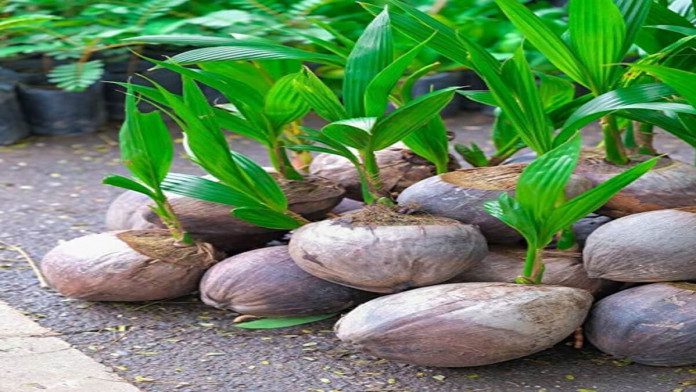News in Brief:
– The Kenyan government is distributing high-yield coconut seedlings and promoting sunflower cultivation to reduce reliance on imported edible oils.
– This project aims to tap into the vast potential of coconut’s byproducts, valued at over $97 million annually, to boost rural incomes.
In a bid to revitalise the coconut industry and lessen reliance on imported edible oils, the Kenyan government is distributing hybrid coconut tree seedlings to farmers in coastal counties.
This initiative, announced during the country’s National Coconut Week, aims to address the declining coconut tree population and boost domestic production of coconut oil.
According to information made available to the press, the government, through the Agriculture and Food Authority (AFA), is distributing 43,000 fast-maturing hybrid seedlings to farmers in Kilifi, Kwale, Tana River, Lamu, Taita Taveta, and Mombasa counties.
Additionally, the government has allocated Sh200 million ($1.5 million) under the commodities fund for coconut and cashew nut farmers to access loans at a low-interest rate of 3%.
The initiative also includes distributing 15 metric tons of sunflower seeds and plans to introduce pressing machines to support sunflower farming and further diversify edible oil production.
Kenya’s ruling administration expects that these measures, will increase domestic coconut oil production, to significantly cut its import bill for edible oils, currently standing at Sh120 billion ($893 million) annually.
The project also aims to boost rural economic development by creating jobs and improving farmer incomes through increased coconut production and sales of diversified products.
Meantime, research indicates a rise in coconut diseases along the coast, potentially requiring strategies to address this challenge.
Interestingly, coconut offers over 100 byproducts with a potential market value exceeding Sh13 billion (or $96.97 million) annually. Initiatives to promote product diversification and standardisation, as suggested for coconut wine (mnazi), could unlock this potential.



